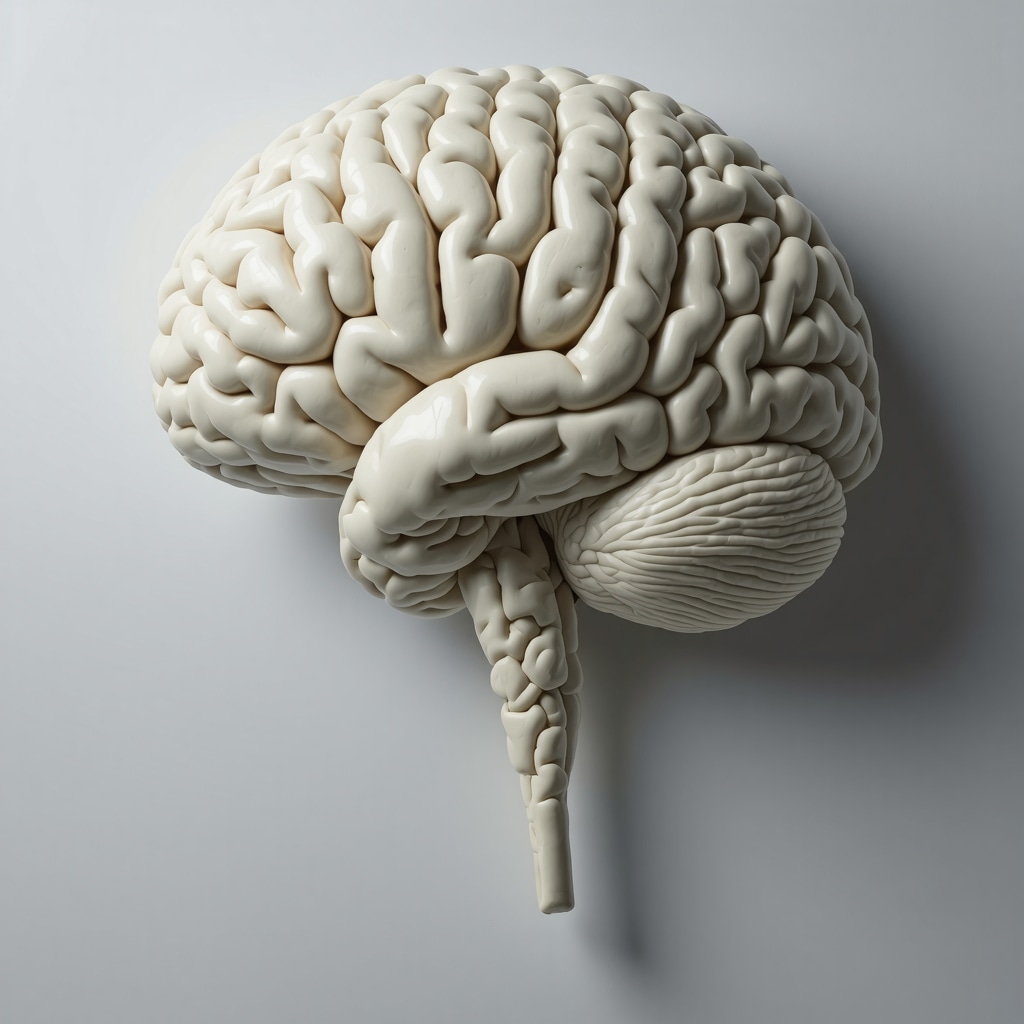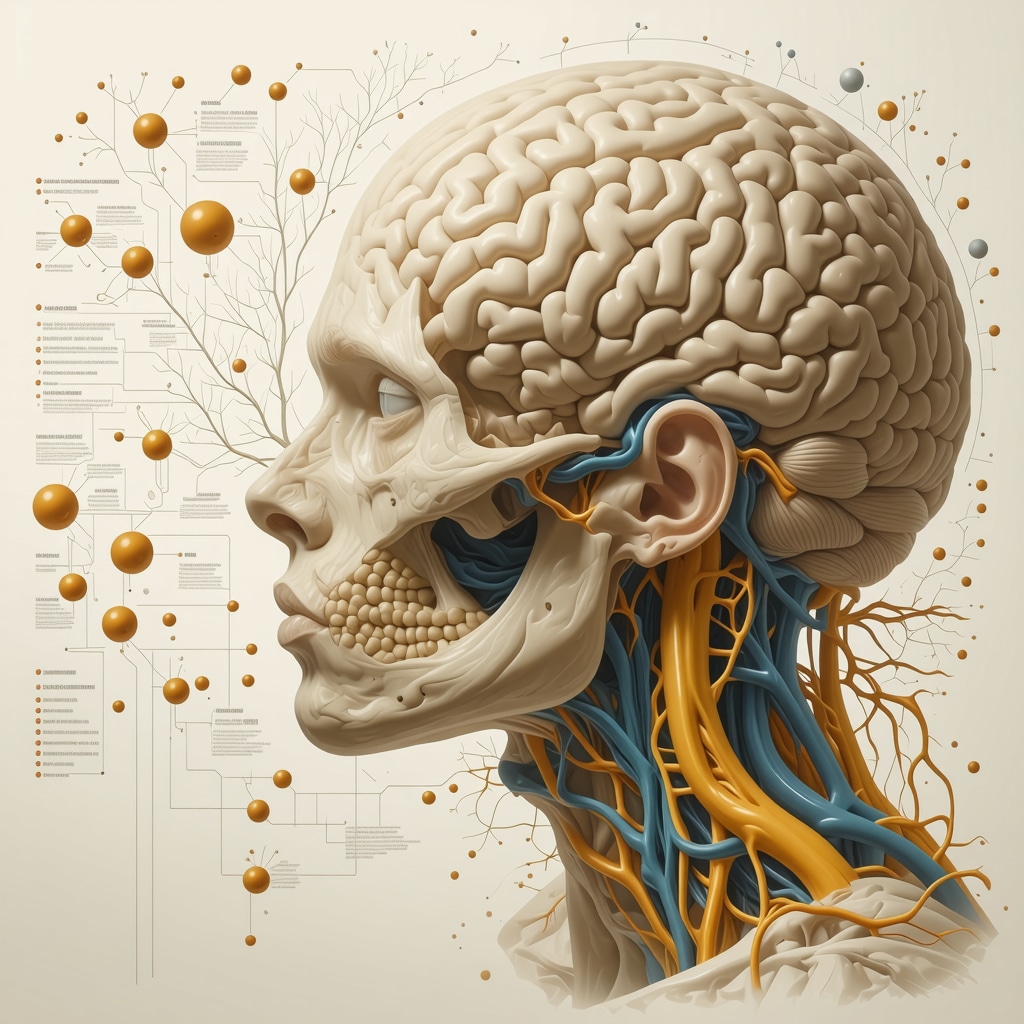Unveiling the Synergy Between Prescription Injections and Lifestyle Modifications for Optimal Fat Loss
In the evolving landscape of medical weight management, integrating prescription injections such as GLP-1 receptor agonists with tailored lifestyle changes has emerged as a cornerstone of effective therapy. As an expert in the field, I recognize that the complexity of obesity requires a multifaceted approach, leveraging pharmacology and behavioral science to unlock superior results.
Deciphering the Pharmacodynamics of Prescription Injections in Weight Management
How do GLP-1 receptor agonists enhance metabolic pathways to facilitate fat loss?
Prescription injections like semaglutide and tirzepatide operate by mimicking gut hormones that regulate appetite and insulin sensitivity. These medications activate specific receptors in the hypothalamus, leading to reduced hunger signals and improved glycemic control. Their ability to promote satiety while modulating glucose metabolism exemplifies a nuanced mechanism that transcends simple calorie restriction.
Scientific studies, including a comprehensive review published in The New England Journal of Medicine, affirm that pharmacological intervention yields significant fat loss when combined with lifestyle modifications. The key is understanding the pharmacokinetics and tailoring dosing to optimize both safety and efficacy.
Integrating Lifestyle Changes: The Pillar of Sustainable Weight Loss
What are the most effective behavioral strategies to complement injectable therapies?
Behavioral modifications such as structured meal planning, mindful eating, and regular physical activity amplify the benefits of prescription injections. For instance, combining a low-calorie, nutrient-dense diet with resistance training can synergistically enhance fat loss and muscle preservation. Cognitive-behavioral therapy techniques also play a role in addressing emotional eating and fostering adherence.
Advanced approaches include utilizing digital health tools for tracking progress and receiving personalized coaching, which has been shown to improve long-term outcomes.
Optimizing the Pharmacotherapy-Lifestyle Interface for Superior Results
Achieving maximal results requires meticulous planning and professional oversight. Regular consultation with healthcare providers ensures appropriate dose adjustments and monitoring for side effects. Additionally, aligning lifestyle interventions with pharmacological effects helps in overcoming plateaus and maintaining motivation.
What are the critical considerations for preventing side effects while maximizing results?
Monitoring for gastrointestinal discomfort, hypoglycemia, or injection site reactions is essential. Hydration and nutritional support can mitigate adverse effects. Moreover, patient education on the importance of consistency and open communication with clinicians enhances safety and effectiveness.
For a comprehensive understanding of safe injection practices, review this expert guide.
By embracing a holistic, science-based approach, clinicians and patients can unlock the full potential of prescription injections combined with lifestyle changes. This synergy not only accelerates fat loss but also fosters long-term health benefits.
Interested in advancing your knowledge? Explore professional strategies for prescription weight management and contribute your insights to this evolving field.
Leveraging Behavioral Science to Refine Injectable Weight Loss Regimens
As an expert in medical weight management, I recognize that behavioral science offers powerful tools to enhance the efficacy of prescription injections like semaglutide and tirzepatide. Understanding the psychological and environmental factors influencing adherence can significantly improve long-term outcomes. Techniques such as setting SMART goals—Specific, Measurable, Achievable, Relevant, Time-bound—empower patients to stay motivated and committed. Additionally, integrating motivational interviewing during consultations fosters intrinsic motivation, helping patients navigate challenges and sustain lifestyle changes.
Research published in JAMA Psychiatry emphasizes that combining pharmacotherapy with behavioral interventions results in superior weight loss outcomes. Tailoring strategies to individual preferences and barriers ensures a personalized approach, increasing the likelihood of success.
Utilizing Digital Tools to Enhance Engagement and Tracking Progress
In the digital age, leveraging apps and wearable technology can provide real-time feedback, accountability, and personalized coaching. These tools enable meticulous tracking of food intake, physical activity, injection schedules, and even emotional triggers. Such data-driven insights help clinicians adjust treatment plans more precisely. Furthermore, digital platforms facilitate peer support and community engagement, which are proven to boost motivation and adherence.
For comprehensive guidance on integrating technology into weight management, consult resources like this expert article.
Challenging Assumptions: Is Weight Loss Solely About Calorie Deficit?
Could hormonal and metabolic factors undermine traditional calorie-focused approaches in injectable therapy?
Emerging evidence suggests that weight loss is not merely a matter of caloric deficit but also involves complex hormonal and metabolic pathways. GLP-1 receptor agonists like semaglutide influence appetite-regulating centers in the brain, but they also interact with gut hormones and insulin sensitivity, which can vary widely among individuals. This complexity indicates that a one-size-fits-all calorie deficit strategy may overlook essential physiological differences. Personalized medicine approaches, incorporating genetic, hormonal, and microbiome analyses, could revolutionize how we tailor injectable therapies for optimal results.
To explore personalized strategies further, professionals can review the latest insights in physician-guided fat loss.
Interested in advancing your practice or understanding? Share your experiences or ask questions in the comments section, or explore this comprehensive guide on safe semaglutide use.
Mastering the Intricate Role of Gut-Brain Axis Modulation in Prescription Weight Loss
Recent breakthroughs highlight the significance of the gut-brain axis in regulating appetite and energy expenditure, especially when leveraging GLP-1 receptor agonists. These medications, such as semaglutide and tirzepatide, not only suppress hunger but also influence vagal nerve signaling pathways that communicate gut status to central regulatory centers in the hypothalamus. Understanding these neuroendocrine interactions can help clinicians optimize dosing regimens to enhance satiety signals while minimizing adverse effects.
Advanced neuroimaging studies, like functional MRI, reveal that GLP-1 analogs attenuate activity in brain regions associated with reward-driven eating, thereby reducing compulsive snacking behaviors. Integrating this knowledge with behavioral interventions, such as cue exposure therapy, can further diminish conditioned responses to high-calorie foods, leading to more sustainable weight management outcomes.
How can personalized modulation of the gut-brain axis improve individual responses to injectable therapies?
Personalized approaches may involve microbiome analysis, as gut microbial composition influences hormone secretion and receptor sensitivity. Tailoring prebiotic or probiotic interventions alongside pharmacotherapy could potentiate the satiety effects of GLP-1 receptor agonists. Additionally, genetic testing for polymorphisms in hormone receptor genes can predict responsiveness, enabling precision medicine in weight management.
For practitioners interested in this frontier, consult the comprehensive review in Science, which discusses neuroendocrine pathways involved in appetite regulation.
Synergizing Pharmacotherapy with Cognitive Behavioral Therapy: A Pathway to Long-Term Success
While pharmacological agents can significantly reduce caloric intake, long-term success heavily depends on behavioral adaptation. Cognitive-behavioral therapy (CBT) techniques tailored for weight loss, including self-monitoring, stimulus control, and problem-solving, can reinforce the physiological effects of injections. Embedding CBT within a multidisciplinary framework ensures that psychological barriers, such as emotional eating and low self-efficacy, are addressed concurrently.
Emerging evidence supports the integration of virtual reality environments for exposure therapy, helping patients confront high-risk situations in a controlled manner, thus strengthening behavioral resilience. Combining these methods with pharmacotherapy creates a comprehensive approach that addresses both physiological and psychological determinants of obesity.
What innovative behavioral interventions can be paired with injectable therapies to optimize outcomes?
Utilizing AI-driven personalized coaching platforms, which adapt to individual progress and barriers, can facilitate adherence and motivation. Additionally, biofeedback techniques that monitor physiological markers like heart rate variability may provide real-time cues to manage cravings and stress responses, further supporting weight loss efforts.
Implementing these strategies requires a nuanced understanding of patient psychology and environmental influences, emphasizing the importance of a tailored, integrative approach.
Emerging Technologies and Data Analytics in Weight Management Optimization
Advancements in wearable sensors and mobile health applications offer unprecedented insights into behavioral patterns, physiological responses, and medication adherence. Data analytics can identify early signs of plateau or non-compliance, prompting timely clinical interventions. Machine learning algorithms can also predict individual trajectories, allowing for proactive adjustments to therapy plans.

Furthermore, integrating these digital tools into electronic health records facilitates multidisciplinary collaboration, ensuring that all stakeholders are informed and engaged in the patient’s journey. This data-driven paradigm shift moves us closer to truly personalized, adaptive weight management strategies that maximize the efficacy of prescription injections while addressing individual variability.
How can clinicians leverage big data to refine weight loss protocols involving pharmacology and behavioral science?
By analyzing aggregated data from diverse populations, clinicians can identify patterns and predictors of success, leading to evidence-based customization of treatment algorithms. This approach minimizes trial-and-error, accelerates outcomes, and enhances patient satisfaction.
To delve deeper into this transformative potential, explore the detailed insights in PLOS ONE on AI applications in obesity management.
Engagement and continual education are vital—consider subscribing to specialized journals, participating in professional networks, and contributing your clinical experiences to advance this promising field.
Harnessing the Gut-Brain Axis for Personalized Weight Management Innovations
Recent neuroendocrine research underscores the pivotal role of the gut-brain axis in modulating appetite and satiety signals, especially in response to GLP-1 receptor agonists like semaglutide. Understanding individual variations in vagal nerve signaling and hormonal responses can enable clinicians to tailor dosing protocols that maximize efficacy while minimizing adverse effects. Techniques such as functional MRI can provide insights into neural activity changes, guiding precision medicine approaches.
This nexus of neurobiology and endocrinology opens new frontiers in personalized obesity treatment, emphasizing the importance of integrating microbiome profiling and genetic testing to predict responsiveness to pharmacotherapy. For instance, microbiome modulation through prebiotics or probiotics could enhance hormone receptor sensitivity, amplifying the satiety effects of injectables.
Synergizing Pharmacokinetic Insights with Behavioral Adaptations for Sustained Results
Optimizing the timing and dosing of injectable therapies in conjunction with behavioral interventions such as cognitive-behavioral therapy (CBT) can produce synergistic effects. Advanced scheduling algorithms that consider individual pharmacokinetics and psychological readiness are emerging as vital tools in clinical practice. This integration ensures that physiological satiety signals align with behavioral cues, reinforcing dietary adherence and physical activity routines.
Furthermore, leveraging biofeedback and wearable technology to monitor physiological markers like heart rate variability can inform real-time behavioral adjustments, fostering resilience against emotional eating triggers.
What Are the Cutting-Edge Innovations in Digital Analytics for Weight Loss Optimization?
How can artificial intelligence and big data analytics revolutionize personalized weight management protocols?
Emerging AI-driven platforms analyze vast datasets from diverse populations, identifying predictive markers of treatment success and failure. Machine learning algorithms can develop individualized treatment pathways, adjusting medication dosages, behavioral strategies, and nutritional plans dynamically. This data-centric approach reduces trial-and-error, accelerates outcomes, and enhances patient engagement.
For example, integration of continuous glucose monitoring with behavioral tracking allows for nuanced insights into metabolic responses, informing dose titrations and lifestyle modifications in real time.

By embracing these technological advancements, clinicians can elevate the standard of care, transforming weight management from a reactive to a proactive, data-driven discipline.
How Do Hormonal and Microbiome Interactions Influence the Long-Term Success of Injectables?
Understanding the complex interplay between gut microbiota and hormonal pathways reveals opportunities for adjunctive therapies that potentiate pharmacological effects. Microbiome diversity correlates with hormone receptor sensitivity, affecting satiety and energy expenditure. Personalized microbiome modulation may enhance responsiveness to GLP-1 analogs, leading to more durable weight loss.
Additionally, genetic polymorphisms affecting hormone receptor function can inform individualized dosing and combination therapy strategies, ensuring optimal receptor engagement and metabolic benefits.
Innovative Behavioral and Technological Synergies for Enhanced Adherence
Incorporating virtual reality exposure therapy, AI-powered coaching, and real-time biofeedback into treatment regimens can significantly improve adherence and motivation. These tools help patients confront environmental triggers and develop adaptive coping mechanisms, reinforcing physiological effects of medications.
Engaging patients through immersive and personalized experiences fosters long-term behavioral change essential for sustained weight management success.
Conclusion: Embracing a Multidisciplinary, Data-Driven Approach to Fat Loss Optimization
The future of prescription injection therapy lies in the seamless integration of neuroendocrine insights, personalized microbiome and genetic data, advanced digital analytics, and behavioral science. This comprehensive approach empowers clinicians to design highly individualized, adaptive treatment plans that not only accelerate fat loss but also ensure its durability. As this field evolves, continuous learning and technological adoption will be crucial for practitioners committed to excellence in weight management.
Expert Insights & Advanced Considerations
1. The Role of Personalized Medicine in Enhancing Injectable Therapy Outcomes
Integrating genetic, hormonal, and microbiome data allows clinicians to tailor dosing and medication combinations, significantly improving efficacy and reducing side effects. Personalized approaches are transforming weight management by addressing individual variability in response to GLP-1 receptor agonists.
2. The Impact of Gut-Brain Axis Modulation on Appetite Regulation
Understanding neuroendocrine pathways, especially the gut-brain axis, enables more precise modulation of satiety signals. Techniques like microbiome profiling and neuroimaging can optimize dosing regimens, leading to more sustainable weight loss and better patient adherence.
3. The Integration of Digital Health Technologies for Real-Time Monitoring
Wearable devices, mobile apps, and AI-driven analytics facilitate continuous tracking of behavioral, physiological, and medication adherence data. This integration enhances personalized feedback and timely interventions, vital for long-term success in injectable weight loss programs.
4. Combining Pharmacotherapy with Behavioral Science for Long-Term Success
Embedding cognitive-behavioral therapy, motivational interviewing, and virtual reality exposure within treatment plans addresses psychological barriers, reinforcing physiological effects and fostering durable behavioral change.
5. Advancements in Data Analytics and Machine Learning for Protocol Optimization
Leveraging big data and machine learning enables the development of predictive models for individualized treatment plans, reducing trial-and-error and accelerating results. This technological evolution signifies a new era in precision weight management.
Curated Expert Resources
1. Science Advances in Neuroendocrinology of Appetite Regulation
Research articles in Science provide insights into neuroendocrine pathways influencing weight loss, essential for advanced practitioners seeking to refine treatment protocols.
2. Microbiome and Hormonal Interactions in Obesity
The PLOS ONE database offers comprehensive data on microbiome analysis and its impact on hormone sensitivity, supporting personalized therapeutic strategies.
3. Digital Tools for Weight Management
Resources like Weekly Injection Tips provide practical guidance on integrating technology into clinical practice, enhancing patient engagement and adherence.
4. Behavioral Science in Obesity Treatment
The JAMA Psychiatry publication discusses effective behavioral interventions, including motivational interviewing and virtual reality therapies, crucial for comprehensive care.
5. Data Analytics and AI in Personalizing Weight Loss Protocols
Exploring applications in PLOS ONE reveals how predictive modeling can optimize individual treatment plans, marking a technological frontier in obesity management.
Final Expert Perspective
In the realm of prescription injection weight loss strategies, embracing an integrative approach that combines cutting-edge neuroendocrinology, microbiome science, and advanced digital analytics is paramount. These insights elevate personalized medicine from a concept to a practical reality, ensuring more effective, durable, and safer outcomes. As professionals committed to excellence, engaging with these high-level developments and resources will position us at the forefront of this transformative field. For those eager to deepen their expertise, I encourage ongoing professional dialogue and exploration of the latest research to continuously refine our practice and better serve our patients. To connect or share insights, visit our contact page and join the conversation.

